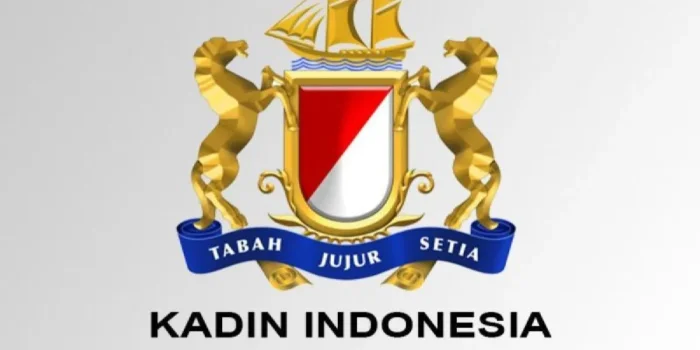Synergy between Government and Kadin to Realize Food Self-Sufficiency

By: Eleine Pramesti *)
Food self-sufficiency is a strategic goal that Indonesia wants to achieve in order to realize national food security and reduce dependence on food imports. With a growing population, food needs are increasing, the government together with the Indonesian Chamber of Commerce and Industry (Kadin) play an important role in creating a sustainable and independent food system. Collaboration between the government and the business world is key to building a strong, innovative and competitive agricultural ecosystem.
banner 336×280
The government, as the main policy maker, is responsible for providing regulations that support the strengthening of the agricultural sector, starting from policy planning, infrastructure provision, to sustainable natural resource management. Minister of Agriculture (Mentan), Andi Amran Sulaiman said that the Indonesian Chamber of Commerce and Industry (Kadin) plays an important role in realizing food self-sufficiency targeted by President Prabowo Subianto. The Ministry of Agriculture and Kadin have officially signed a Memorandum of Understanding (MoU) to strengthen synergy in the sustainable food self-sufficiency program. Amran emphasized that according to President Prabowo Subianto’s direction, the agricultural sector is currently a priority because it is a pillar for the four main government programs.
On the other hand, Kadin acts as a strategic partner that bridges the interests of the business world with government policies. Through a broad network and investment capabilities, Kadin is able to provide concrete solutions in terms of financing, marketing, and strengthening the food supply chain. With the involvement of business actors, the agricultural modernization process becomes faster, more efficient, and based on more accurate market demand.
Kadin Chairman Anindya Bakrie expressed his commitment to fully support the food self-sufficiency program. He assessed that the Ministry of Agriculture has proven that efficiency does not have to sacrifice performance and production. Anindya also highlighted the great attention of President Prabowo’s government to the agricultural sector. Kadin is also committed to supporting the government’s program.
The importance of the government’s role in creating policies that favor farmers and business actors in the agricultural sector cannot be ignored. Regulations regarding incentives for farmers and investors in the agribusiness sector are important factors in attracting the interest of the younger generation to enter the world of agriculture. In addition, fertilizer subsidy policies, modern agricultural tools, and access to financing must also continue to be strengthened so that farmers have high competitiveness in producing food efficiently.
Deputy Minister of Home Affairs, Bima Arya Sugiarto, invited regional heads to oversee the food self-sufficiency acceleration program. His party was ordered by President Prabowo to oversee the Minister of Agriculture and the Coordinating Minister for Food to achieve self-sufficiency.
In addition to regulations, agricultural infrastructure is also a vital element in supporting food self-sufficiency. The government has made efforts to build irrigation networks, farm roads, and agricultural storage warehouses to ensure more effective and efficient food distribution. However, there are still major challenges in terms of equal distribution of agricultural infrastructure, especially in remote areas that are still difficult to reach. Therefore, collaboration with the private sector through a public-private investment scheme is a solution that can be optimized.
In the context of agricultural modernization, the role of Kadin in encouraging the adoption of digital technology and smart farming-based agricultural innovation is a crucial aspect. With digital technology, farmers can obtain real-time market information, optimize the use of fertilizers and pesticides, and increase production efficiency through automation of agricultural systems. The growing agricultural e-commerce platform also provides wider opportunities for farmers to sell their crops directly to consumers, without going through a long distribution chain.
In addition, food diversification is another strategy that needs to be strengthened in realizing food self-sufficiency. The government and Kadin need to encourage the development of alternative food commodities such as sago, sorghum, and tubers as sources of carbohydrates that can complement dependence on rice. Educational programs for the community regarding more diverse food consumption patterns must also be strengthened so that food security does not only depend on one type of commodity.
The financing aspect in the agricultural sector is also a challenge that needs to be addressed with a mature strategy. Banking and financial institutions have a role in providing friendly credit schemes for farmers and agribusiness actors. In this case, Kadin can play a role in connecting business actors with financial institutions to ensure sufficient access to capital for the development of agricultural businesses. The People’s Business Credit (KUR) scheme for agriculture that has been running needs to be continuously developed so that it can reach more farmers throughout Indonesia.
In facing global challenges such as climate change and economic uncertainty, national food security must be supported by a sustainable production system. The government and Kadin have a role in encouraging the implementation of sustainable agricultural practices, such as organic farming, agroforestry, and the use of renewable energy in the food production process.
Cooperation between the government and Kadin in realizing food self-sufficiency not only has an impact on national economic stability but also on people’s welfare. With an independent and sustainable food system, Indonesia can reduce dependence on food imports and ensure the availability of food for all its people. Therefore, strong synergy between government policies and the role of the business world must continue to be strengthened in order to realize the great ideal of national food self-sufficiency.
)* The author is an Energy Journalist at the Greenpeace Resources Institute
